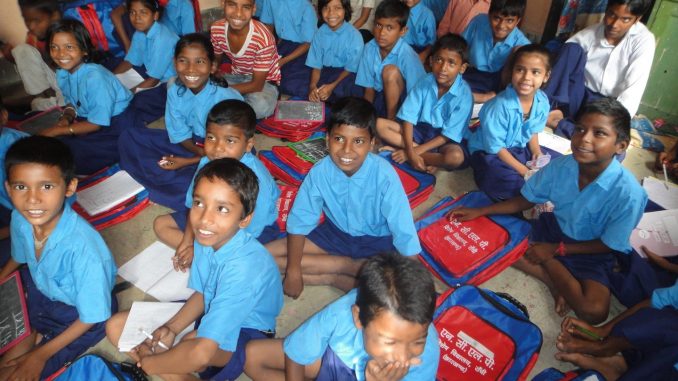
By J S Rajput
Ancient Indian culture and learning traditions invariably lay emphasis on man-nature mutuality, making it the responsibility of the thinking human minds to dexterously maintain the sensitive balance
Ancient Indian culture and learning traditions invariably lay emphasis on man-nature mutuality, making it the responsibility of the thinking human minds to dexterously maintain the sensitive balance. Unfortunately, wanton exploitation of natural resources has led to a situation in which the very survival of the human race is under threat.
The irony is evident in continued human exploitation of nature’s bounties. Everyone needs to learn afresh, and that makes it imperative on policy makers to restructure the content and process of education.
One could recall the initiative of March 1990 when the World Conference on Education for All resolved to achieve Universal Elementary Education by the end of the millennium. It invigorated global efforts and access to education has crossed the 90 percent-mark. It is encouraging that there is an unhindered demand not only for education, but also education that offers skills.
In a world torn between deprivations, hunger and ill-health on one side, and strife, violence and insecurity on the other, the only alternative is education. This realisation was given a concrete shape by the UN General Assembly in 2015 when it recognised UNESCO as the lead agency “to continue to provide coordination for the implementation of the Global Action Plan on Education for Sustainable Development (ESD) in cooperation with partners, advocate for adequate resources for ESD, support member states in building capacity, promote the sharing of knowledge, and assess progress towards the achievement of ESD”.
Among the 17 sustainable development goals (SDG) to be achieved by 2030, education figures as SDG-4: “Ensure inclusive and equitable quality education and promote lifelong learning opportunities for all”. Earlier three goals were removal of poverty, zero hunger and ‘good health and well-being’! There can be no two opinions on the primacy of these concerns even before a child comes to school. Among the targets identified under SDG-4 is the one listed at 4.7: “By 2030, ensure that all learners acquire the knowledge and skills needed to promote sustainable development, including, among others, through education for sustainable development and sustainable lifestyle, human rights, gender equality, promotion of a culture of peace and nonviolence, global citizenship and appreciation of cultural diversity and culture’s contribution to sustainable development”.
India is at the threshold of finalising its new education policy. This is the right time to include elements of sustainable development. These would also determine the extent to which the youth could take advantage of the opportunities opening up globally under what is termed the golden period of the demographic dividend.
The global community takes keen interest in the progress of Indian initiaves in universalising education and in enhancing its quality. India has consistently played a prominent role in global policy formulations concerning education and its achievements have been appreciated, particularly in light of its population increasing by factor of more than three in the post-Independence period.
The challenges before India now stand well-delineated; it has to upgrade its government schools and restore their credibility, teacher preparation systems deserve a total overhaul, preschool systems are to be restructured, and new pedagogy and technology have to be integrated. India could greatly augment the global initiatives to achieve the targets of the SDG-4 by making the world aware of its philosophical comprehension of the human responsibility to sustain man-nature relationship.
Source: The New Indian Express

Leave a Reply